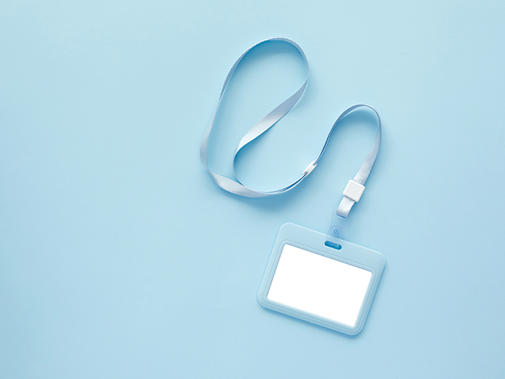An NHS trust’s initiative to improve patient safety by tackling sexism and unconscious bias in the workplace, has been backed for wider adoption by the BMA.
West Herts Teaching Hospitals NHS Trust has sought to eliminate instances of staff being misidentified and not having their role or seniority recognised, through the use of a colour-coded lanyards scheme.
The initiative was devised by gastroenterology registrar Shamira Ghouse following a series of meetings of her trust’s End Sexism in medicine network, as a means of ensuring that individuals’ roles within clinical teams were clearly identifiable to colleagues and to patients.
The BMA is now encouraging other trusts to consider adopting similar schemes.
Speaking to the BMA, Dr Ghouse said she had been inspired to propose the scheme having worked under a similar system at a previous job, and because of numerous personal experiences in which patients and other staff had assumed she was more junior than a male colleague.
She said: ‘I had quite a few unpleasant experiences while in my first year as a medical registrar, which I thought affected not only my wellbeing but also patient safety.
‘[Often] I would turn up to cardiac arrests and peri arrests and be the most senior member of the team, but often everyone would look to my male foundation year 1 colleague for advice and for leadership, and I would be providing instructions that weren’t being taken seriously.
‘I just thought that there needs to be a way that we better identify people, especially in emergency situations, so that patients can be managed safely, and colleagues can be treated with respect.
‘The first idea I thought of was that everyone wears lanyards it might be useful having them brightly coloured in a way that people could easily identify what grades people are, not only just for colleagues but also for patients and families.’
Desired effect
A survey of trust staff conducted following the introduction of the lanyards showed that 65 per cent of female staff said they had noticed a reduction in sexism and bias they had experienced in the workplace.
Dr Ghouse said she credited the trust for being ‘exceptionally supportive’ in approving and rolling out the initiative, adding she felt the scheme was one that could easily be implemented more widely across the NHS.
The extent to which sexism affects the medical profession and the health service was exposed following a 2021 BMA survey of more than 2,400 doctors, which revealed 91 per cent of women doctors had experienced sex-based discrimination in their workplaces.
 GHOUSE: Trust 'exceptionally supportive'
GHOUSE: Trust 'exceptionally supportive'
In response to the survey, the association launched its Ending Sexism in Medicine pledge in March this year, with organisations including NHS Employers, NHS Providers and the Medical Women’s Federation signing up to its provisions.
West Herts’ End Sexism in medicine staff network chair Rachel Hoey said the lanyards initiative was just one of a series of initiatives tackling sexism that were being pursued at her trust, in line with the recommendations of the BMA pledge.
Sign the pledge
Speaking to the BMA she said: ‘Most female doctors have experienced some sort of sexism [and] … when the BMA produced the report about sexism in the medical profession, it had quite an effect.
‘I would say that if other organisations are wanting to know how to take sexism in the medical profession seriously, then one of the things they can do is also sign the BMA pledge.
‘The suite of actions [in the pledge] are quite straightforward, they’re probably part of some of the work they’re already doing with HR, and it means it’s easier to have a checklist [to gauge] if we are going in the right direction.’

